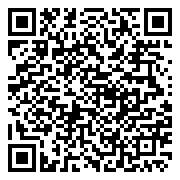CRLCC Brown Bag Lunch series : Plurilingual Scholarly Writing: Politics and Practices
Plurilingual Scholarly Writing: Politics and Practices
By
Dr. James Corcoran
YH-A304- Center of Excellence
Glendon College- York University
Plurilingual Scholarly Writing: Politics and Practices
James Corcoran, Assistant Professor of ESL & Applied Linguistics, York University
In a global market of academic knowledge production increasingly dominated by English, a growing body of research has emerged charting the challenges faced by scholars using English as an additional language, particularly those working at universities in the global peripheries (Bennett, 2014; Corcoran, 2019; Corcoran, Englander & Muresan, 2019; Englander & Corcoran, 2019; Hanauer, Sheridan & Englander, 2019). However, as is often the case in the field of applied linguistics, much of this work has taken a quick snapshot rather than a wider-lens view of plurilingual scholars’ research writing over time (Bazerman et al., 2017; Curry & Lillis, 2019; 2017). My recent work (Carrasco, Kent, Englander & Corcoran, in press; Corcoran, forthcoming) has attempted to add to the scant literature on plurilingual scholars’ research writing beliefs, strategies, and processes over the span of their academic trajectories.
Drawing on data from a 2015 mixed methods case study and follow-up qualitative work (ongoing) investigating the research writing experiences of Latin American scientists at a prestigious Mexican university, this presentation describes the research writing beliefs, strategies, and processes of plurilingual scientists as they pursue publication of their work at international, English-medium journals over a five-year period following participation in an intensive research writing course. Originally, a post-course survey (n=55) and interviews (n=19) were carried out with multiple stakeholders (journal editors; plurilingual scientists; research writing instructors) connected to an intensive three-week research writing course offered at a Mexican university in 2013. Findings pointed to specific challenges faced by scholars attempting to publish their work in an additional language as well as particular ideologies of language and science that influence and are influenced by increasing pressures to publish (in English). Further findings pointed to a range of particular strategies and processes employed by plurilingual scientists as they attempted to disseminate their work to domestic and international audiences. Recent data (analysis ongoing) from follow-up interviews with two emerging (early career) and one established (late career) environmental scientists point to evolving critical language awareness and personal (often plurilingual) research writing strategies and processes over time. This data highlights a diversity of plurilingual processes and strategies these scientists engage in when producing their work for publication in scientific journals, suggesting the potential ancillary, longer-term impact of intensive research writing courses. This presentation concludes with a discussion of the implications of this work for a variety of stakeholders (plurilingual scholars, writing researchers, journal gatekeepers, university language and writing support staff) in an era of increasing English hegemony in academic knowledge production.
References
Bazerman, C., Applebee, A. N, Berninger, V., Brandt, D., Graham, S., Matsuda, P. K, Murphy,
S., Rowe, D. W & Schleppegrell, M. (2017). Taking the long view on writing development. Research in the Teaching of English, 51(3), 351-360. United States: National Council of Teachers of English.
Bennett, K. (2014) Introduction: The political and economic infrastructure of academic practice: The ‘semiperiphery’ as a category for social and linguistic analysis. InK. Bennett (ed) The Semiperiphery of Academic Writing(pp. 1-9). London: Palgrave Macmillan.
Carrasco, A., Kent, R., Englander, K. & Corcoran, J. N. (in press). Modelar, atender o resistir a las políticas académicas de publicación: Respuestas disciplinarias en instituciones mexicanas de educación superior. In E. Hamel (Ed.) Las políticas del lenguaje en América Latina. Berlin: De Gruyter.
Corcoran, J. N. (2019). Addressing the ‘bias gap’: A research-driven argument for critical support of plurilingual scientists’ research writing. Written Communication, 36(4), 538-577. https://doi.org/10.1177/0741088319861648
Corcoran, J. N., Englander, K., & Muresan, L. (2019). Diverse global perspectives on scholarly writing for publication. In Author, K. Englander & L. Muresan (Eds.) Pedagogies and policies on publishing research in English: Local initiatives supporting international scholars. (pp. 1-16). New York: Routledge.
Curry, M. J. & Lillis, T. (2019). Unpacking the lore on mulitilingual scholars’ publishing
in English: A discussion paper. Publications, 7(27), 1-14.
Curry, M. J. & Lillis, T. (2017). Problematizing English as the privileged language of global academic publishing. In M. J. Curry & T. Lillis (Eds.) Global academic publishing: Policies, practices, and pedagogies. (pp. 1-22). Clevedon, UK: Multilingual Matters.
Englander, K., & Corcoran, J. N. (2019). English for research publication purposes: Critical plurilingual pedagogies. New York: Routledge.
Hanauer, D. I., Sheridan, C., & Englander, K. (2019). Linguistic injustice in the writing
of research articles in English as a second language: Data from Taiwanese and
Mexican researchers. Written Communication,36(1), 136-154.

